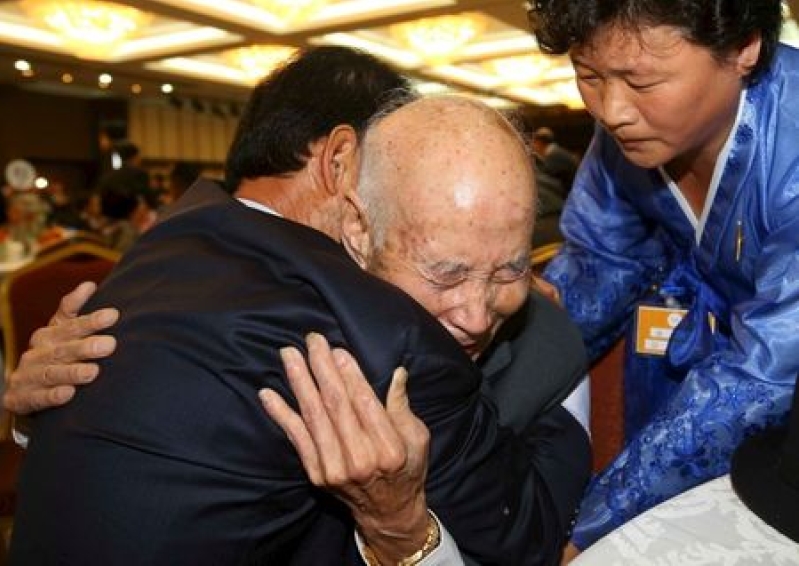
Nearly 400 South Koreans crossed the heavily armed border into North Korea on Tuesday to be reunited, in an outpouring of emotions and tears, with family members separated for more than six decades since the 1950-53 Korean War.
The two Koreas, which are divided and remain in a technical state of war, agreed to hold the family reunions for the first time since February last year after negotiating the end of a standoff at the military border in August.
Participants, some as old as 88, were reunited at the resort of Mount Kumgang just north of the militarized border with children and spouses from whom they had been separated when the peninsula was divided at the end of the war.
"Father, it's me, your son," Chae Hee-yang, 65, from the South told Chae Hoon-sik, 88, from the North, as they wept at their first meeting since the younger man was just a year old, according to a report by South Korea's Yonhap news agency.
Foreign news outlets were not allowed to cover the event.
Families separated since the war have no means of communication and often do not know if relatives on the other side are surviving.
In the first round of reunions starting Tuesday, 96 North Koreans and their families met about 390 people traveling from the South. The second round reunites about 190 North Koreans with 90 South Koreans and their families.
The South Koreans, mostly elderly and some in wheelchairs, had gathered on Monday in the east coast city of Sokcho near the border for medical check-ups and a briefing on appropriate conduct while in the North.
On Tuesday morning they boarded buses to cross the border.
The reunions, held in a ballroom at the Mount Kumgang resort, are watched by officials and media and include only two hours of private time before they end on Thursday.
South Korean participants are advised to steer clear of a long list of topics, such as the North's political leadership or living standards, to the frustration of some of the visitors.
A guidebook suggests advance preparation of notes for subjects to be discussed with North Korean kin, such as the dates of parental deaths, as time is limited and the emotions can be overwhelming.
Before leaving on Tuesday for a reunion with his elder brother in the North, Kim Ki-joo struggled to frame the questions he would ask at their first meeting in 65 years.
"It is thrilling but I can't organize my thoughts," Kim said. "I can't think of what to say. We are being reunited after 65 years, when I was 11. I want to ask if he can recognize me."
(Reporting by Ji Dagyum; Writing by Ju-min Park; Editing by Michael Perry and Clarence Fernandez)






